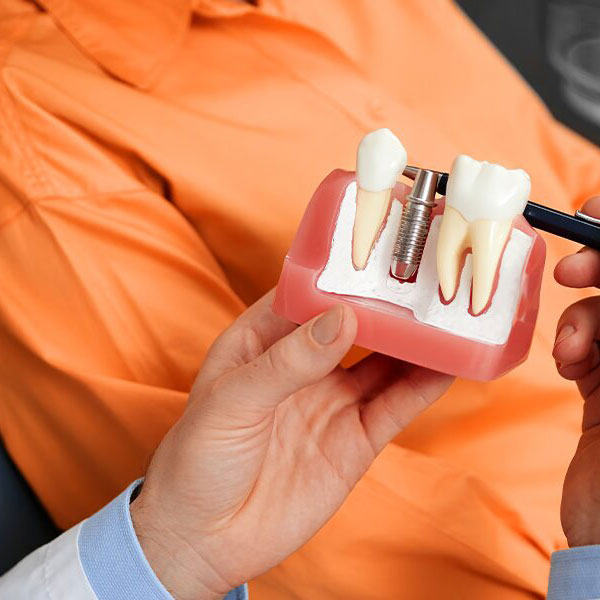Does Dental Insurance Cover Dental Implants?
It can be difficult to live with missing teeth. Dentists say that dental implants offer the best solution for this. The reports show that dental implants will generate $5 billion in revenue by 2023. The high cost of placing implants can be a deterrent. Private funding accounts for two-thirds (or more) of the dental care costs in the U.S. This has led to significant differences in dental insurance policies. This article examines whether dental coverage includes dental implants, its extent, and factors that influence it.
Understanding dental implants
Dental implants are screw posts that are inserted in your jawbone . They serve as roots for your teeth and anchor a prosthesis overlaid with them. The screws used in implants are mainly made of titanium, and they can be different sizes and shapes. Crowns overlying the implants are usually made from zirconia or porcelain fused metals.
Here’s a list that shows which implants work best for different clinical situations:
- If you’ve lost one tooth it can be replaced by a single-unit implant — a post and crown.
- A bridge supported by implants can be used to replace several lost teeth in a row. It will involve placing multiple posts strategically to hold the implant-supported bridge in place.
- Implant-supported dentures are a great option when you need to replace the arches. You can choose to have a denture that spans a single arch, or both arches depending on your requirements.
There are many reasons why dental implants are the best option for replacing missing teeth. They are strong and durable. They are both beautiful and functional. With proper care, these can last a lifetime.
Does insurance cover dental implants?
No one answer can be given to this question. The coverage of dental insurance for procedures can vary widely . The type of dental insurance, the policy structure and type of treatment that you will receive all affect your coverage. Your oral surgeon or implantologist can give you the most accurate information about the coverage of your insurance and the specifics of the surgery you plan.
While some insurance policies may cover your entire costs, the majority of them might only cover a partial portion . Partial coverage may include certain surgical phases and range from 10-50%.
Many dental implant surgeries require multiple stages and may include jaw reconstruction or augmentation prior to the placement of implants. You may be able to get some of the pre-implant surgery covered by your medical insurance. dental coverage covers both the cost of the implant and the direct surgical procedure required to place it in your mouth. You should check your dental or medical insurance to see what coverage is available.
Factors affecting implant coverage
One in four adults of working age has no dental coverage, and the number rises to 50% for older adults. In the United States and Canada, the largest percentages of people skip dental care are also reported. This is largely due to financial concerns and a lack of knowledge about insurance coverage. Find out what factors determine the amount of dental insurance you receive.
- Insurance policies have guidelines. For example, some plans require that you select a dentist in their network to ensure you get care from providers who are approved. Some plans do not limit your choice of dentist, but they may restrict the amount that will be covered for certain procedures. You could pay more out of pocket if the dentist charges you more than what is allowed by your plan.
- Your coverage will depend on the reason for your implant. Insurance companies are more likely to cover dental implants if they were caused by an accident (sports injuries, knockdowns) or because it was a medical necessity (for chewing and speaking). You may have difficulty getting reimbursed for your expenses if you are only doing it to improve the appearance. It’s important to know the exact reason for getting implants in order to claim them easily.
- Insurance details come into play. Certain dental insurance plans require a waiting period for major dental procedures. This includes dental implants. The waiting period may range from a few weeks to more than a year. Plan your implant surgery with your provider.
- Your state of residence can affect your insurance coverage. Insurance providers may vary in their policies and services from one state to another, depending on the jurisdiction or county. Ask your dentist if your insurance covers their services and location.
- You may need to renew an annual plan every year to keep receiving benefits. These policies may offer a maximum amount that will cover all of your expenses over the course of a year or lifetime. You may have to pay more out of your own pocket if you exceed the maximum amount.
What is the cost of dental implants covered by insurance?
Dental insurance may or may be covered for dental implants. You can expect coverage of 10-50%, depending on the details of your policy.
It is interesting to note that the coverage can differ between the various stages of implant surgery. Take a look.
- Stage 1, extraction and bone grafting. The first step in putting in a dental implants is to remove the teeth. This is usually covered by insurance. The amount of healthy jawbone available for implant placement may require bone grafts.
- Stage 2. This is where the post is surgically drilled into the jawbone. This stage is covered by most dental insurance policies.
- Stage 3. Abutment placement. After the post is successfully installed, this stage is intermediate. The abutment is a connector that connects the post to the crown or bridge. Some plans cover this step in part.
- Stage 4. Crown placement. The final stage is when the crown is attached to abutment or post. This stage can be covered by dental insurance plans, similar to the regular crown placement procedure.
Maximizing coverage for dental implants
Speak to your dentist or insurance provider if you’re unsure what your policy covers. To get the most from your insurance, here are five important points you should keep in mind.
In the past two decades, seniors have experienced the largest increases in their out-of pocket dental expenses. Dental insurance knowledge can stop this trend. Start planning your implant surgery wisely. Consult your dentist or insurance provider if you’re unsure of the best plan for you. You can explore your treatment options with them and learn how to maximize coverage.
The FAQ
Are dental implants costly?
Dental implants are costly. Costs can vary depending on materials used and dentists’ experience. Dental insurance can reduce costs. Consult your dentist for the best plan.
What is the maximum coverage that my policy can provide?
The coverage may vary. The type of insurance and the reason for your implant surgery will determine the amount you pay. You can get a better understanding of what is covered by insurance from your dentist or implantologist. Plan your finances carefully before deciding to have an implant surgery.
Can I receive immediate reimbursement for my implants surgery?
There is usually a waiting time before you get your best reimbursement. Depending on the plan, it may cover all or part of your expenses. Speak to your insurer to learn the details.
Takeaways:
- Dental implants can be expensive, and they require insurance coverage.
- Dental insurance plans for dental implant placements vary. Some dental insurance plans cover the entire cost, while others may only cover a portion.
- The amount of reimbursement depends on your insurance plan and the reason for your implant.
- To get the most from your policy, it’s important to speak to your dentist as well as your insurance provider.






